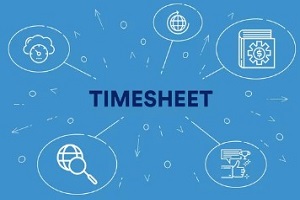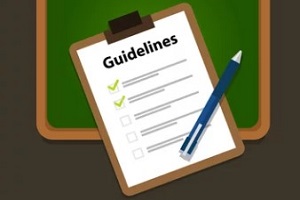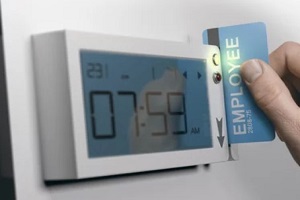 Government contractors must abide by strict policies and adopt accepted practices in order to work with the federal government. The DCAA (Defense Contract Audit Agency) is responsible for the compliance audits of contracts for the Department of Defense (DOD).
Government contractors must abide by strict policies and adopt accepted practices in order to work with the federal government. The DCAA (Defense Contract Audit Agency) is responsible for the compliance audits of contracts for the Department of Defense (DOD).
Businesses must satisfy multiple conditions, including timekeeping, to avoid fines and continue receiving contracts from government agencies.
What are Some of the Most Common Errors in DCAA Compliance?
Since timekeeping is one of the main points of focus for maintaining DCAA compliance, having adequate timekeeping practices in place can significantly increase audit success.
Some of the most common mistakes made by federal contractors involve issues surrounding timekeeping. In addition to recording the hours correctly, the hours often fail to be attributed to the correct projects and more commonly, not accurately designated as direct or indirect costs.
Failure to achieve and maintain DCAA compliance can result in a loss of the award or failure to receive future awards. Here are some of the most frequent mistakes and how to avoid them:
How to Ensure DCAA Compliant Time Tracking
 The following are some of the top methods to maintain and fulfill the DCAA compliant time tracking requirements. Although they can be achieved internally, outsourcing these tasks to a certified public accountant (CPA) firm experienced in DCAA audits can not only significantly decrease intensive labor hours, but also drastically improve timekeeping and other related compliance with the DCAA.
The following are some of the top methods to maintain and fulfill the DCAA compliant time tracking requirements. Although they can be achieved internally, outsourcing these tasks to a certified public accountant (CPA) firm experienced in DCAA audits can not only significantly decrease intensive labor hours, but also drastically improve timekeeping and other related compliance with the DCAA.
Begin with Documentation
Each employee of a federal contractor, even those who are not directly involved in contracts, must formally document their time. They are also required to have, at a minimum, annual training outlining the precise timekeeping policies. This training should be recorded in the employee’s personnel file, though that recording is not required, but strongly recommended, by the DCAA.
Regular Timekeeping
All DCAA records and timesheets should be reported by all employees on a daily basis for accuracy. Timesheets presented in advance of time worked, or at the end of a work period, are not considered compliant or accurate. Regardless of the size of your company, a certified public accountant can oversee all reporting of hours to filter out advanced or late time input and stop the submission of timesheets with inaccuracies.
Recording All Hours
As all employee time worked should be accounted for by daily tracking, there must also be within that recorded time, a detailed record of paid time off (PTO) hours. Those hours must then be accurately designated between vacation, sick, holidays and any other special application of PTO. A designated professional can regulate the PTO recording in compliance with the specific contract award.
Adhere to the Project Guidelines
 Just as crucial as entering the time, labeling it correctly and assigning it to the appropriate project is also critical. The finance team or system administrator must create the job names and codes for all the relevant employees and authorize them according to their projects.
Just as crucial as entering the time, labeling it correctly and assigning it to the appropriate project is also critical. The finance team or system administrator must create the job names and codes for all the relevant employees and authorize them according to their projects.
Work hours must then be accurately detailed to indicate direct or indirect time. Indirect time, such as that used toward operations that may overlap and not be specific to one project, must also be recorded as such. CPA firms working with government awards use established timekeeping systems that correctly identify and assign hours to the correct project and labor use.
Obtain Approval
The employee’s supervisor must examine and approve any time request submitted. It is essential to keep in mind that for federal contractors, all reported timesheets constitute legal documents. This audit trail can be monitored for inconsistencies and errors using a software system designed for contractor use and should have a designated person for this task. Outsourcing your accounting can significantly ensure those records are consistently reviewed and securely maintained for future audits.
Keep the Documents Safe
All relevant timesheets must be stored for a minimum of two years, along with any revisions. Projects under government contracts, in particular, must be retained for three years following the last payment for audit. The safest approach to guarantee timesheets will be retained and safeguarded is to depend on cloud-based payroll software that complies with the DCAA. There is a greater chance that files stored in printed formats or hard drives have higher risk of being lost, misplaced or damaged.
For Accuracy in your DCAA Compliant Time-Tracking
 The CPAs of Diener & Associates specialize in federal government contractor compliance with the GSA, FAR, DFARS and CAS and have an established accounting system consistent with the generally accepted accounting principles (GAAP) and meeting the federal requirements as outlined in SF1408.
The CPAs of Diener & Associates specialize in federal government contractor compliance with the GSA, FAR, DFARS and CAS and have an established accounting system consistent with the generally accepted accounting principles (GAAP) and meeting the federal requirements as outlined in SF1408.
As the DCAA guidelines continue to change, it is essential to constantly be aware of all modifications to the requirements. A CPA firm specializing in government contracts monitors those policy changes and ensures your company remains current and compliant.
Enlisting the resources provided by Diener & Associates can detect and prevent recording errors and place your business as a lead among competitors when seeking future awards. Call Diener & Associates at 703-386-7864 or schedule a consultation today.
